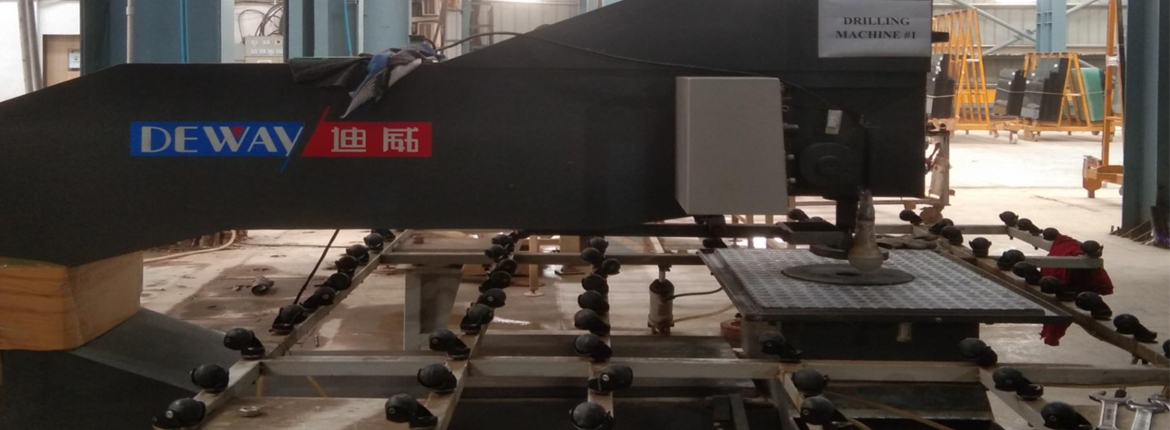Contact Number
-
-
Email
sales@esspeeglass.com
-
Visit Us
Kohinoor Square, Mumbai-400 028
Contact Number
Visit Us
The following comprises of the core of what we create here at EssPee.
All of our machines are designed, built and programmed to work in synchronization as a complete system, thus providing the capacity to produce up to 11,000 tons of processed glass yearly.
Our engineers, being highly efficient and having the global exposure; are known to undertake all tasks that go hand-in-hand for the processing of every batch; right from keying in the dimensions for cutting the panes to selecting the temperature for strengthening the glass as can be seen below.
Glass of varying thickness is ordered and made available beforehand so it can go through the cutting process. Before putting it through the processes required to derive the units, it needs to be cut according to the length and height specifications needed by the customer.
Our sophisticated Intermac CNC machine helps make available glass of different specifications for processing, by flawlessly cutting out the units required without any hassle.
Size and quantity specifications are keyed in and multiple panes are cut out. This automated process has the capacity to produce a large output of cut glass.
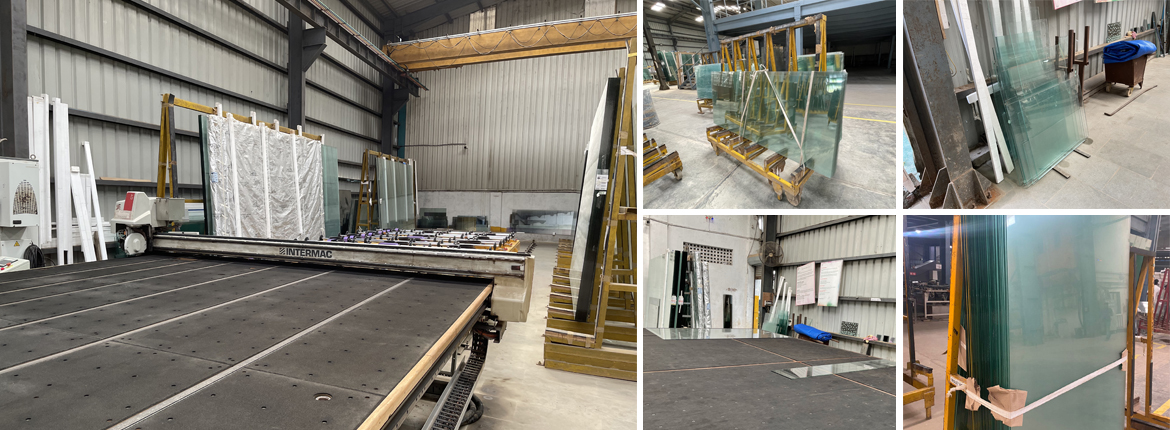
Toughened glass, also called Tempered Glass has increased strength than regular glass as the name would suggest, due to which it is used in areas where safety is of utmost importance and greater uniform load strength is assured. It lessens the possibility of mechanical or thermal breakage. Heat Strengthened glass offers thermal cracking resistance. It has the same properties as that of regular tempered and annealed glass, with an addition of exceptional strength and breakage characteristics.
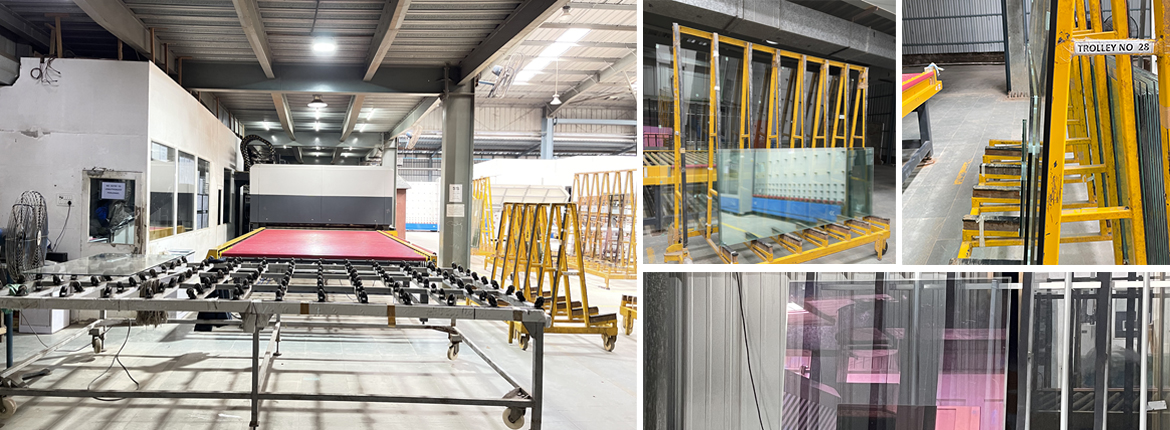
One unit of Insulated glass is created by joining two or more panes of glass (of equal specifications) and keeping a dead-air space between them. An aluminium tube is lined to that space. This tube contains the desiccant responsible for the absorption of air and is sealed to the glass’s perimeter surface with butyl (polyisobutylene) sealant and is externally sealed with an elastic based on polysulphide polymer or silicone. The purpose of this type of glass processing is resisting sound and controling temperature. The insertion of Argon gas is responsible for the said control or regulation of temperature.
The most common demand for insulated glass is for Double Glazing Units or DGU’s, although there are Triple Glazing Unit (TGU) Specifications that can also be arranged for or made available as per order.
Our fully automatic Han Jiang insulation machine is the reason most of the insulation work happens in a timely and hassle-free fashion. We have now acquired a new Sealing Robot that automates the process of silicone application to the edges of the fused panes.
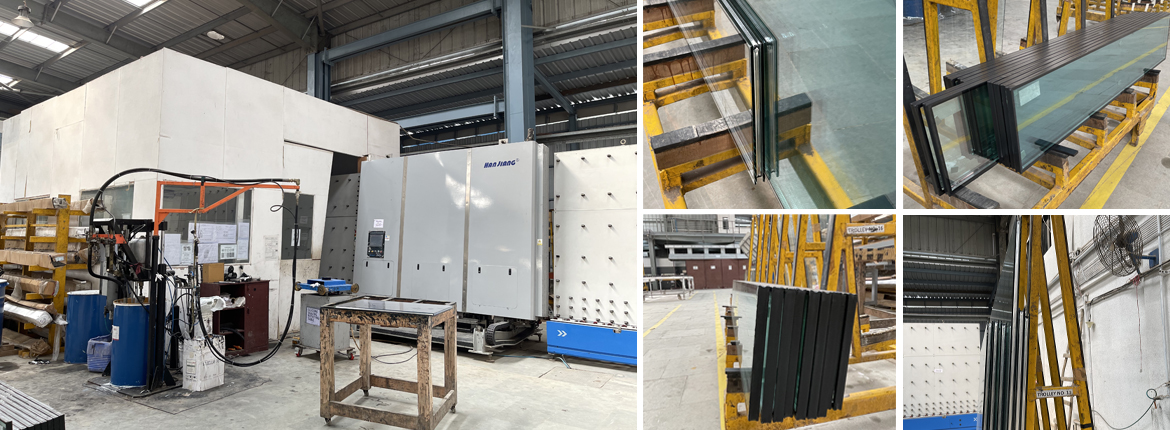
Laminated Glass is a result of multiple sheets of glass bonded to a tough and thermoplastic polyvinyl butyric. This is primarily safety glass. The heavy reinforcement makes it resistant to forced break-ins. It would take enormous effort to completely shatter the glass in time.
It also provides ultraviolet protection and can also be used for noise control and cancellation purposes.
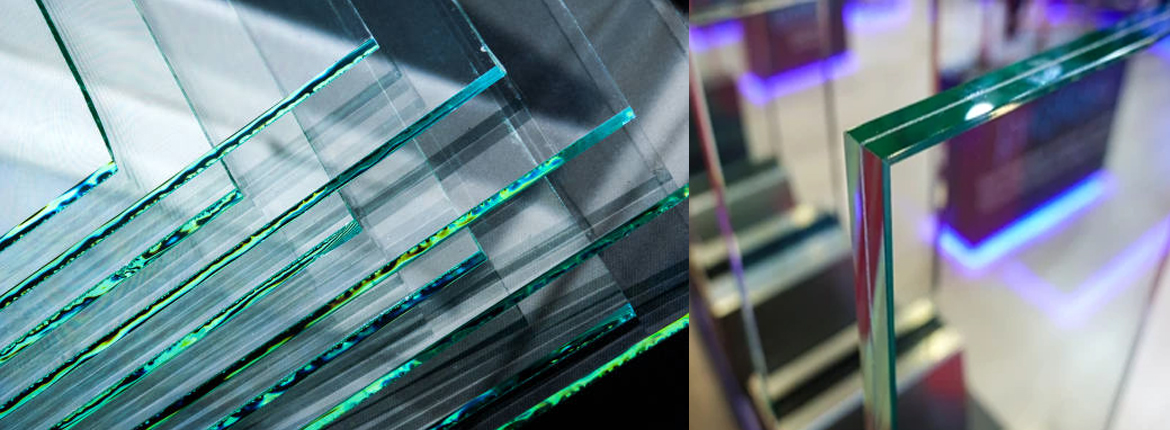
Ceramic Print is added to glass by making the print a part of it, rendering it resistible to peeling and/or chipping damage. A layer of ceramic is placed over the glass surface right before it is sent for heat strengthening or tempering, after which the ceramic and the glass surface it is on are bonded.
The tints make the glass decorative and colours and patterns can be customised as per requirement. Being heat strengthened, the glass takes less damage, giving it great utility and mechanical efficiency as well.
Also called Silk Glass, this is used in applications where a part or whole of the glass is masked to conceal the other side from view, for privacy and security reasons.
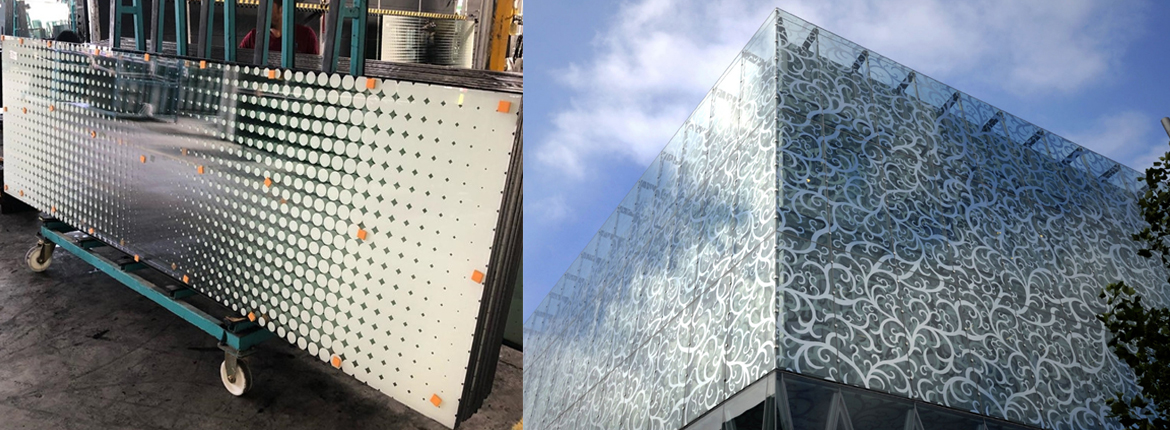
Edging is the process of polishing the parallel lines of the edges of all types of annealed flat glass. It is applicable for glass with thickness of 3 to 30 mm.
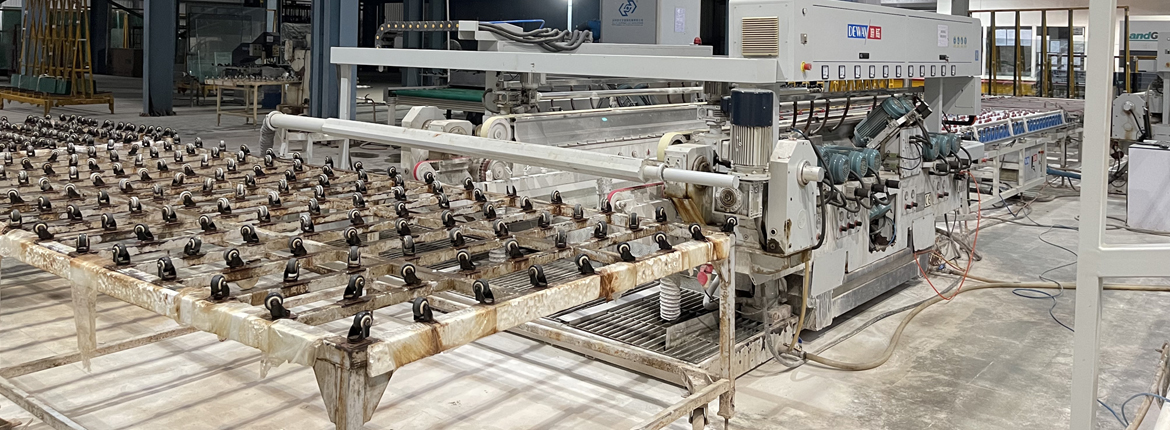
Our Handong Glass Washing Machine is used for washing and air drying of glass flat sheets before toughening.
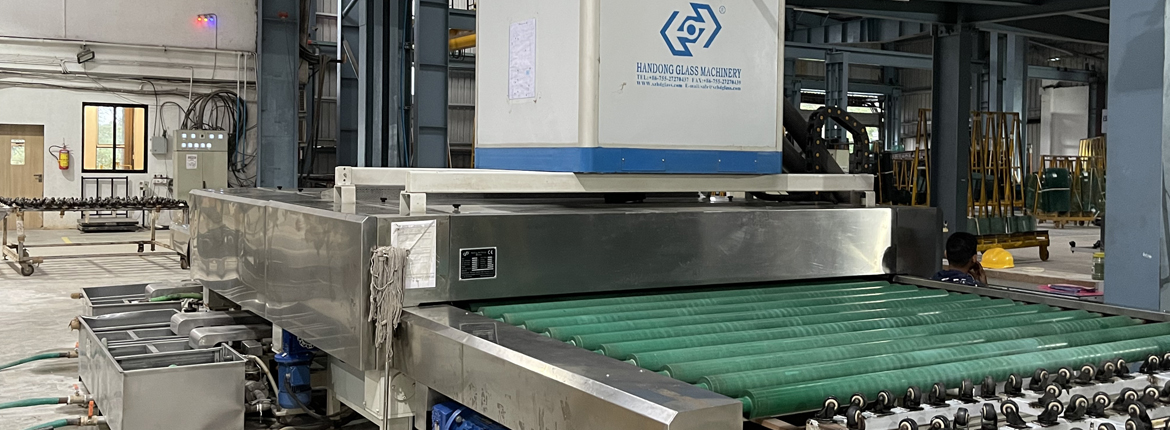
Our Deway Glass Drilling machine is used for drilling holes in glass of varied thickness. Equipped with drilling bits of different sizes, the machine is efficient for batch processing and drilling holes for various flat glass.
